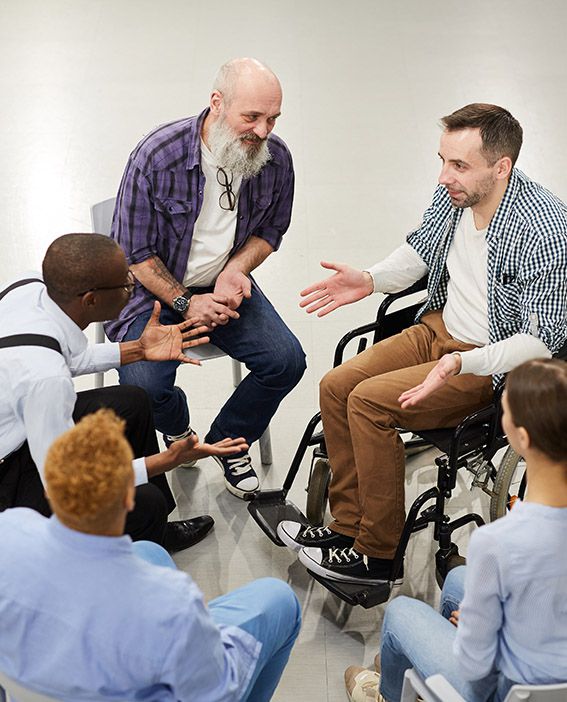Dual Diagnosis Treatment
Addiction rarely exists in isolation. It usually goes hand in hand with something else. Sometimes – particularly among young people – addiction is rooted in peer pressure and a desire to fit in. Other people become addicted as a result of trauma. Very often, addiction either causes or is caused by mental illness. According to the Centre for Addiction & Mental Health (CAMH), people with mental illnesses are at least twice as likely as the general population to have a concurrent addiction problem. Similarly, people suffering from addictions are about three times more likely to have coexisting mental illnesses.
The clinical term for a mental illness that occurs alongside a drug or alcohol addiction is dual diagnosis. Addiction is not easy to separate from mental illness, since one feeds off of the other. This means that, if you’re truly committed to lasting sobriety, you need to treat both. Toronto Addiction Centres can refer you or your loved one to a rehab facility that is experienced in helping people with dual diagnoses.


The Addiction-Mental Health Connection
Though we have come a long way over the past fifty years, mental illness is still heavily stigmatized. Sadly, this means that more than half of those who struggle with mental illness don’t seek the treatment they need. Even when people with mental illness do seek treatment, they may not receive the care they need; conditions such as depression and anxiety are notoriously challenging to treat, and often require several different strategies.
It is no wonder that so many people with mental illness turn to substance abuse. Many prescription drugs can temporarily alleviate the symptoms of mental illness, while painkillers offer a temporary break from the pain of depression. Drugs such as marijuana can make the world feel more manageable. Over time, though, these drugs wane in effectiveness. Even worse, the effects of addiction can make an already challenging existence worse.
In some cases, drugs and alcohol can trigger a mental illness. Research suggests that marijuana can deplete motivation, while drugs such as heroin and methamphetamine can cause depression and lead to psychosis. No matter how effective they seem at first, drugs and alcohol are not a viable strategy for treating mental illness.
Why You Need to Treat Both Conditions
The connection between mental illness and substance abuse is not unidirectional, with one phenomenon inevitably causing the other. Instead, dual diagnoses are cyclical. Mental illness makes life more challenging, and so does addiction to drugs and alcohol. Addicts turn to ever-increasing amounts of alcohol and drugs in an effort to cope, often failing to realize that they are making the problem worse.
If you want to recover from addiction, you must address any underlying mental illness. In the same way, mental illness is most effectively treated if the individual is first weaned off of the drugs that can cloud judgment and undermine health. Good treatment simultaneously addresses both issues.


Treatment of Dual Diagnosis
A good rehab facility will provide personalized treatment plans that cater to their clients’ individual needs. Some strategies that may be used include the following:
- Therapy: Proper mental healthcare can help you understand why you became an addict, gain insight into your mental illness, and cultivate coping skills for managing both.
- Group support: Support groups offer assistance in managing your emotions, while offering you the hard-won wisdom that only someone who has “been there” can provide.
- Medical care: Mental illnesses are real illnesses, and they require medical treatment. Likewise, the effects of addiction can linger in your body for years after you have achieved sobriety. The right medical care helps you manage both your mental illness and your addiction.
- A supportive environment: Never underestimate the importance of your environment. A sober living environment makes it easier to resist temptation, and support from compassionate, caring staff can make a world of difference—particularly if your home environment is not conducive to recovery.
Addiction Rehab Centres Canada can help by referring you to a rehab facility that will provide you with the treatment you need.
Further Reading
Is Drug Addiction a Mental Disorder
Talk To One Of Our Specialists By Calling 1-855-885-4747
